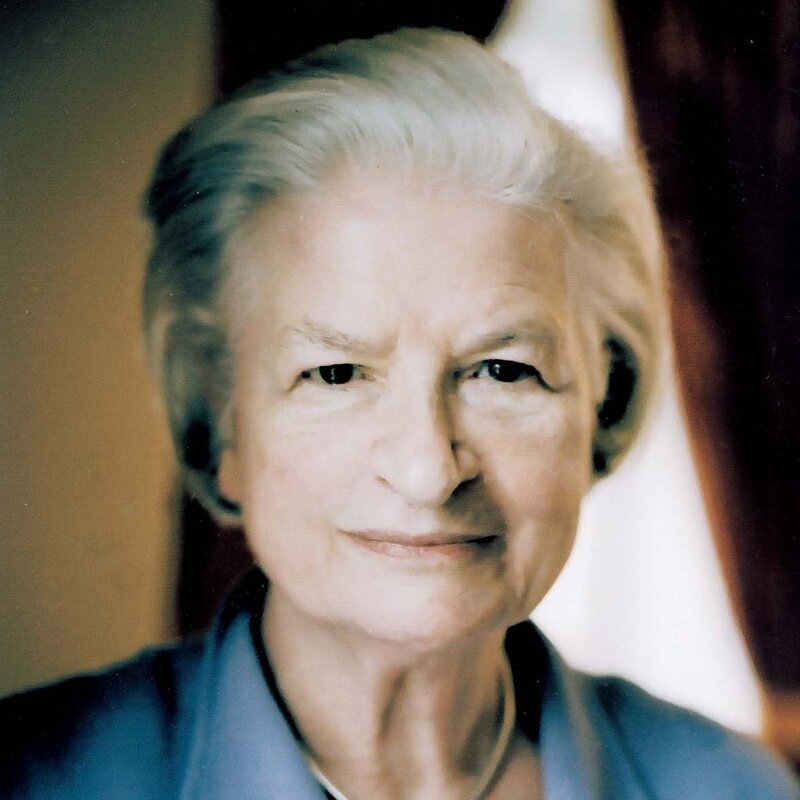British Mystery Novelist P.D. James Dies At 94

Author P.D. James, whose publisher says died at age 94.
Ulla Montan/AP
Phyllis Dorothy James, a baroness and award-winning writer of such books as Shroud for a Nightingale, The Black Tower and The Murder Room, was born in Oxford began writing in her late 30s and published her first novel, Cover Her Face, in 1962.
A statement from publisher Knopf quoted Charles Elliott, her longtime editor, as saying: "Phyllis broke the bounds of the mystery genre. Her books were in a class of their own, consistently entertaining yet as well-written and serious as any fiction of our time. She was, moreover, a delight to be around and work with, beloved by readers and her publishers around the world. We will all miss her."
Biography.com says James took up writing as a means to support her family after her husband, a World War II veteran, was incapacitated by mental illness. Cover Her Face was written in the evenings and during her commute to a job in Britain's National Health Service, the website says.
According to Biography.com:
In 2011, James was interviewed by NPR's Linda Wertheimer for the release of what became her final novel, Death Comes to Pemberley."Dubbed the 'Queen of Crime,' James went on to write 13 more Dalgliesh murder mysteries. Many of them were set in enclosed communities, illuminating the tensions and violence that can erupt amongst tightly knit groups of people. Shroud for a Nightingale, published in 1971, is set at a nursing school, and Original Sin (1994) at a small publishing house in London; Death in Holy Orders (2001) probes the motives behind a killing at a theological college, and the final Dalgliesh mystery, The Private Patient (published in 2008), unfolds at a private plastic surgery clinic in an English manor house."
"I had this idea at the back of my mind that I'd like to combine my two great enthusiasms," James told Wertheimer. "One is for the novels of Jane Austen and the second is for writing detective fiction."
On the definition of a mystery novel, she said:
"What we have is a central mysterious crime, which is usually murder. We have a closed circle of suspects, with means, motive and opportunity for the crime. We have a detective who can be amateur or professional who comes in rather like an avenging deity to solve it. And by the end, we do get a solution."
Inside the Locked Room
A Certain Justice: An Adam Dalgliesh Mystery
by P.D. James
Knopf, 364 pp., $25.00
“So it is here at last, the distinguished thing!”Henry James’s famous final words might be the epigraph for the literary genre we call mystery/detective. In these usually tightly plotted, formulaic novels a corpse is often discovered as soon as the reader opens the book:
—Henry James, on his deathbed
The corpse without hands lay in the bottom of a small sailing dinghy drifting just within sight of the Suffolk coast. It was the body of a middle-aged man, a dapper little cadaver, its shroud a dark pin-striped suit which fitted the narrow body as elegantly in death as it had in life…. He had dressed with careful orthodoxy for the town, this hapless voyager; not for this lonely sea; nor for this death.In A Certain Justice, P.D. James’s new, fourteenth novel, the opening is given a stylish aerial perspective that suggests something of the novel’s sophisticated variant on the old form:
—P.D. James, Unnatural Causes (1967)
On the morning of Bernie Pryde’s death—or it may have been the morning after, since Bernie died at his own convenience, nor did he think the estimated time of his departure worth recording—Cordelia was caught in a breakdown of the Bakerloo Line outside Lambeth North and was half an hour late at the office.
—P.D. James, An UnsuitableJob for a Woman (1972)
The bodies were discovered at eight forty-five on the morning of Wednesday 18 September by Miss Emily Wharton, a sixty-five-year-old spinster of the parish of St. Matthew’s in Paddington, London, and Darren Wilkes, aged ten, of no particular parish as far as he knew or cared.
—P.D. James, A Taste for Death (1986)
The Whistler’s fourth victim was his youngest, Valerie Mitchell, aged fifteen years, eight months and four days, and she died because she missed the 9:40 bus from Easthaven to Cobb’s Marsh.
—P.D. James, Devices and Desires (1989)
Murderers do not usually give their victims notice. This is one death which, however terrible that last second of appalled realization, comes mercifully unburdened with anticipatory terror. When, on the afternoon of Wednesday, 11 September, Venetia Aldridge stood up to cross-examine the prosecution’s chief witness in the case of Regina v. Ashe, she had four weeks, four hours and fifty minutes left of life.In this essentially conservative and conventional genre, form always mirrors content, and the principle of equilibrium that has been violated at the outset of the novel must be restored, at least to the reader’s satisfaction; that is, mystery must be “solved”—or dissolved. The chaos and general messiness of actual life with which the traditional novel contends can’t be the subject of mystery/detective fiction, for its premise is that mystery, the mysterious, that-which-is-not-known, can be caused to be known and its malevolent power dissolved. Of course, in superior examples of the genre, which would include most of P.D. James’s novels, there are ironic qualifications …
...and I am Sid Harth




No comments:
Post a Comment